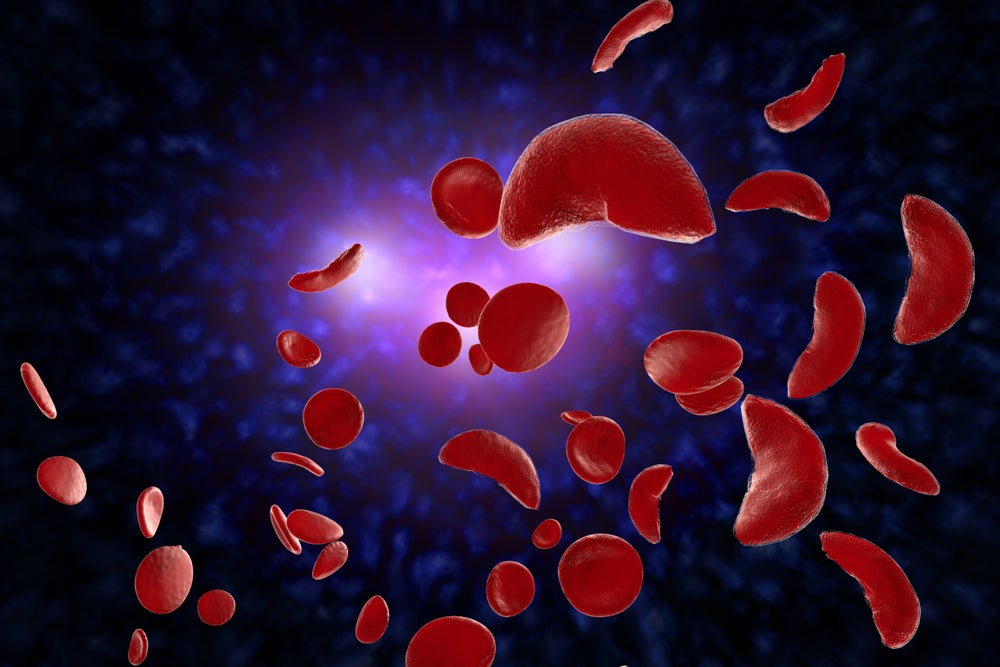
The US Food and Drug Administration (FDA) has approved the first gene therapies to treat sickle cell disease, meaning adult patients in the US with the red blood cell disorder now have access to a one-time treatment.
The approvals are for Vertex Pharmaceuticals and its partner CRISPR Therapeutics’ Casgevy (exa-cel) and bluebird bio’s Lyfgenia (lovo-cel), according to an 8 December FDA news release.
In the case of Casgevy, the FDA followed the UK’s Medicines and Healthcare Products Regulatory Agency (MHRA)’s approval for the treatment in November.
While the FDA approved Casgevy to treat patients aged 12 years and older with recurrent vaso-occlusive crises, Lyfgenia is indicated for patients aged 12 years and older with sickle cell disease and a history of vaso-occlusive events.
The agency’s decision on Casgevy was highly anticipated, as the approval now means the therapy is the first FDA-approved medicine to use the CRISPR/Cas9 genome editing technology. The therapy works by using CRISPR to modify haematopoietic stem cells from the patient so that more foetal haemoglobin (HbF) is produced, which enhances oxygen delivery. The edited cells are then engrafted into the patient’s bone marrow.
Bluebird’s Lyfgenia, on the other hand, is a cell-based gene therapy that uses a lentiviral vector to introduce a new gene for haemoglobin to work in place of the dysfunctional versions. Similar to Casgevy, Lygenia is made from the patient’s blood stem cells. The therapy was approved ahead of schedule, with an original Prescription Drug User Fee Act (PDUFA) goal date of 20 December.
Both therapies are given as a one-time, single-dose infusion. Patients receiving the treatments will be followed in a long-term study to evaluate each product’s safety and effectiveness, according to the FDA. The long-term durability of gene therapies is still a source of concern, with long-term data often limited.
Along with blood transfusions, patients may also be treated with therapeutics such as Pfizer’s Oxbryta (voxelotor), which is used for the treatment of haemolytic anaemia. Novartis’s monoclonal antibody Adakveo (crizalinzumab) is used for the prevention of recurrent vaso-occlusive crises.
With the approval for the two sickle cell treatments, the FDA has now approved 34 gene therapies to date. Sickle cell disease is one of the more well-known rare diseases with approved gene therapies now on the list. More than 100,000 people live with the disease in the US, with the most patients being African American.
According to a sales forecast by GlobalData, Casgevy is estimated to see US sales of $522m by 2029. Lygenia is forecast to have $379m in US sales by 2029.
GlobalData is the parent company of Pharmaceutical Technology.
Whilst the approval will create a clinical impact in the disease space, questions over accessibility remain. Bluebird bio has set a price of $3.1m for Lyfgneia while Vertex and CRISPR will charge $2.2m for Casgevy. Hemgenix, manufactured by CSL Behring for the treatment of haemophilia B, is currently the world’s most expensive drug at around $3.5m.
The FDA’s Center for Biologics Evaluation and Research of the Office of Therapeutic Products’ director of the office of therapeutic products Nicole Verdun said: “Sickle cell disease is a rare, debilitating, and life-threatening blood disorder with significant unmet need, and we are excited to advance the field, especially for individuals whose lives have been severely disrupted by the disease by approving two cell-based gene therapies today.”
Cell & Gene Therapy coverage on Pharmaceutical Technology is supported by Cytiva.
Editorial content is independently produced and follows the highest standards of journalistic integrity. Topic sponsors are not involved in the creation of editorial content.









